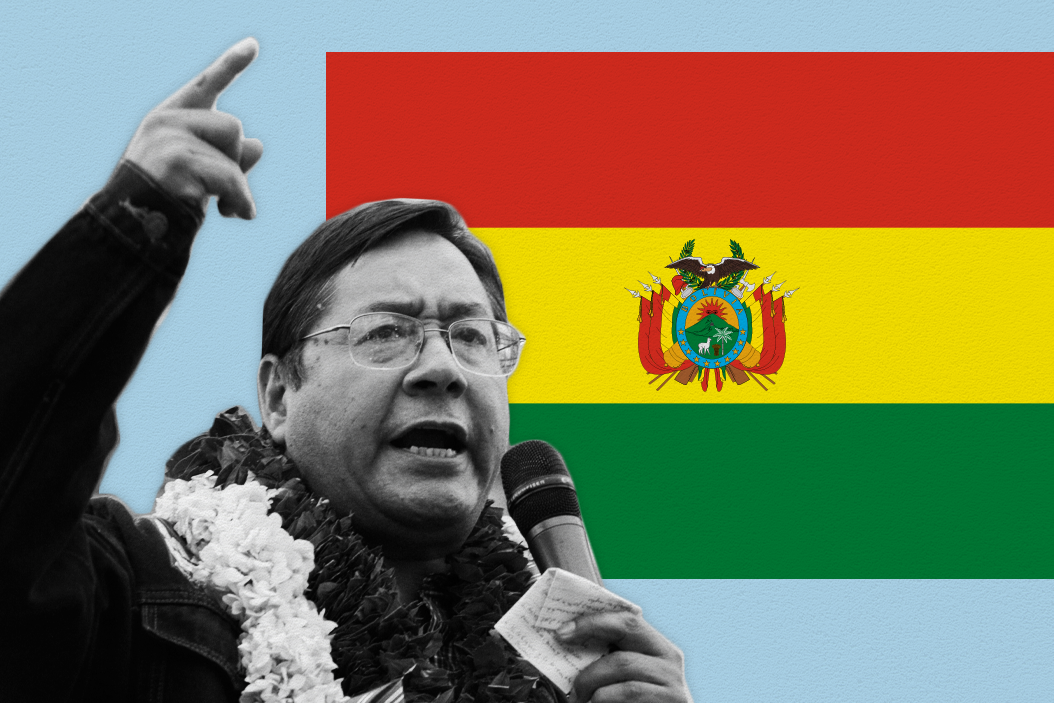October 19, 2020
Call it a counter-counter-revolution at the ballot box. One year after mass protests over election irregularities drove Bolivia's long-serving leftist populist President Evo Morales from office, his preferred candidate has won the presidency — possibly by a landslide.
But can the country's new leader, a soft-spoken economist named Luis Arce, move the country beyond the political trauma of the past year?
The back story. Morales, the first indigenous leader of majority-indigenous Bolivia, held power for 14 years, using the country's lucrative natural gas exports to lift millions out of poverty. But his efforts to sidestep term limits dented his support. After charges of fraud in last fall's presidential vote prompted widespread unrest, the military forced him out of office and into exile. Many on the left called it a coup and were outraged when right-winger Jeanine Áñez took over as an "interim" leader and moved quickly to overturn Morales policies, while riot police repeatedly clashed with his supporters. Áñez flirted with a presidential run of her own, but she backed out in order to unify support behind the right's candidate, former President Carlos Mesa.
On Sunday, Arce, the candidate of Morales' Movement Towards Socialism (MAS) party, won the election. While official results aren't out as of this writing, independent studies suggest it was a walloping, driven by massive support for MAS in the countryside. Áñez has already publicly congratulated Arce on the win, reducing the likelihood of protests or rejection of the results by Mesa's supporters. For the Morales camp, the result offers political vindication after a year of upheaval and uncertainty.
Who is Luis Arce? As Morales' minister of finance and economy, the 57-year-old Arce was in the cockpit during the years when Bolivia's poverty rate dropped from two thirds of the population to less than 40 percent, and GDP soared.
But he's hardly Evo 2.0. Arce has none of the combative charisma of Morales, a highlander who grew up as a llama herder and once headed Bolivia's powerful coca growers union. A technocratic type from an urban middle-class family who studied economics in the UK, Arce's political style is basically "the polar opposite" of Morales, according to Oliver Stuenkel, a prominent regional analyst.
The challenge ahead. "We will govern for all Bolivians," Arce said Sunday, as he pledged to form a "unity government." It remains to be seen what that means, given that MAS has likely reinforced its strong control over Congress.
Regardless, to reunify a country deeply polarized along political, economic, and racial lines, Arce will need to craft a vision that appeals both to the predominantly rural, indigenous-dominated areas that are the MAS support base, as well as to the urban centers that align with the political right.
He'll also have to shake the suspicion that he's a stalking horse for Morales. During his campaign, Arce was careful to distance himself from Morales, and MAS party leaders now say they think Morales' time has passed. But he remains an influential figure who merits close attention, particularly if Arce opens the way for him to return from exile in Argentina.
The pandemic rages. Bolivia has suffered one of the highest COVID-19 death rates per 100,000 people in the world, in part because political uncertainty undermined the public health response. Meanwhile, the pandemic-driven collapse in global demand for commodities like natural gas and precious metals — which make up 80 percent of Bolivia's exports — has plunged the country into its worst economic crisis in decades, threatening to reverse the progress that Morales and Arce made in reducing poverty.
Bottom line: Arce's convincing victory shows that the left remains the dominant force in Bolivian politics. But after a year of trauma, can the mild-mannered successor to one of the region's most charismatic and visionary populists move Bolivia past its bitter polarization?More For You
- YouTube
At the 62nd Munich Security Conference in Munich, GZERO’s Tony Maciulis spoke with Benedikt Franke, Vice Chairman and CEO of the Munich Security Conference, to discuss whether the post-1945 global order is under strain or already unraveling.
Most Popular
- YouTube
Zelensky agrees: elections matter #PUPPETREGIME
As more small businesses move sales, payments, and customer relationships online, they unlock new opportunities, but they also become easier targets for cyber-criminals and other threat actors.
TOKYO, JAPAN - FEBRUARY 8: Japan's Prime Minister Sanae Takaichi, leader of the ruling Liberal Democratic Party (LDP), places a red paper rose on the name of an elected candidate at the LDP headquarters on general election day on February 08, 2026 in Tokyo, Japan. Voters across the country headed to polls today as Japan's Lower House election was held.
Photo by Kim Kyung-Hoon - Pool/Getty Images
When Japanese Prime Minister Sanae Takaichi called snap elections last month, it was a big gamble. Holding a winter election just four months into her tenure with no real policy record to run on?
© 2025 GZERO Media. All Rights Reserved | A Eurasia Group media company.
